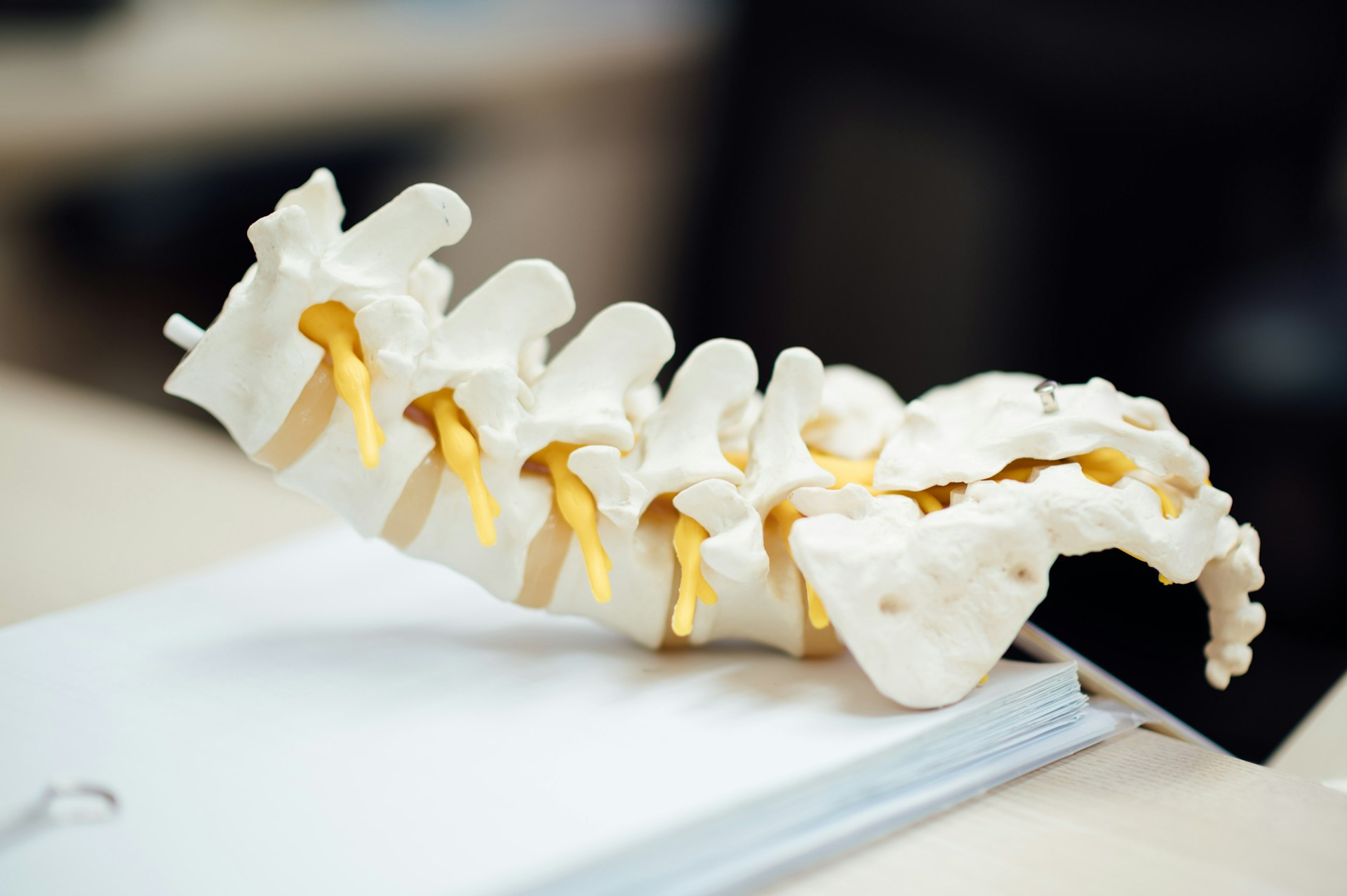Back Pain Affects Millions. The words? Millions? is one cause of disability worldwide. Most back pain will improve with some care taking, avoiding fear or panic, staying active, and so forth, but these warning signs indicate that you should see a health professional immediately. When you know to look for those signs, small problems don’t turn into large catastrophes; you can get treated before the damage is irreversible.

Understanding When Back Pain Becomes Serious
Not all back pain is so severe that it requires medical treatment immediately. But there are some symptoms that are more than signals that your condition is something more than your garden-variety muscle strain or mild injury. These are red flag signs that indicate underlying conditions, including nerve injury, infections, fractures, and other life-threatening pathologies, and would need an immediate evaluation and treatment.
Also Read : Why You’re Working Out But Not Losing Weight
7 Critical Signs You Need Medical Attention
1. Pain Persists Beyond One Week
When to be concerned:
Your back pain does not improve after seven days of rest and over-the-counter pain management.
Your back pain will be better in a few days to a week if you take good care of yourself. When to visit a doctor. Usually, pain will subside on its own within one to two weeks without treatment.
- Herniated or bulging discs
- Muscle or ligament tears
- Joint dysfunction
- Inflammatory conditions
- Underlying structural problems
What to do:
Consult a primary care physician or a back specialist. Early treatment can help stop pain from becoming chronic or a more difficult chronic pain issue that may have been treatable is spotted before it goes further.
2. Pain Radiates to Other Body Parts
When to worry: Your back pain radiates to your buttocks, legs, arms, or other body parts.
Pain that “travels” or shoots elsewhere could be sign of… Nerve compression: Pain shooting down legs or arms (as in sciatica or radial nerve impingement).
- Sciatica
- Cervical radiculopathy
- Thoracic outlet syndrome
- Referred pain
What to do:
If the radiating pain is also accompanied with numbness, tingling or weakness, seek medical care immediately. These are the red flags of nerve compression that need urgent care to prevent permanent damage pompelmopressmg4.com. Get examined by your doctor right away, especially if the pain is traveling down into your leg along with numbness, tingling or weakness. These symptoms may be a sign of compression of the nerves which if not treated immediately would lead to damage of nerve endings.
3. Numbness, Tingling, or Weakness Develops
When to worry: You have loss of sensation, pins and needles or weakness in your in back, legs, arms or other part of the body.
These neurological symptoms are serious warning signs that may indicate:
- Pinched or compressed nerves
- Spinal cord compression
- Nerve root irritation
- Progressive nerve damage
What to do: Contact your doctor immediately. Neurological symptoms require urgent evaluation as delayed treatment can result in permanent nerve damage, disability, or loss of function.
4. Back Pain Follows an Accident or Injury
When to be concerned: Your pain began after a car accident, fall, sports injury, or any traumatic event, regardless of how minor it seemed at the time.

Post-traumatic back pain may indicate:
- Vertebral fractures or compression fractures
- Spinal alignment issues
- Soft tissue injuries
- Hidden internal injuries
- Delayed-onset complications
What to do: Seek medical attention immediately after any accident, even if you initially feel fine. Some serious injuries, including fractures and internal bleeding, may not cause immediate severe pain but can worsen without proper treatment.
5. Pain Worsens at Night or in Specific Positions
When to be concerned: Your back pain intensifies when lying down, wakes you from sleep, or becomes severe in certain positions.
Night pain or position-specific pain may signal:
- Serious infections (such as spinal osteomyelitis)
- Tumors or cancer metastases
- Severe disc problems
- Inflammatory conditions like ankylosing spondylitis
- Vertebral fractures
What to do: Schedule urgent medical evaluation. Pain that wakes you up in the middle of the night could be a sign of a more serious problem such as infection, fracture, severe nerve compression or even cancer.
6. Bowel or Bladder Control Problems Occur
When to be concerned: You experience loss of bowel or bladder control, difficulty urinating, or changes in sexual function alongside your back pain.
These symptoms may indicate cauda equina syndrome, a rare but serious condition where nerves at the base of the spinal cord become compressed. Additional warning signs include:
- Numbness in the genital and anal areas
- Severe leg weakness
- Loss of reflexes
- “Saddle anesthesia” (numbness in areas that would touch a saddle)
What to do: Seek emergency medical care immediately. Cauda equina syndrome can be permanently damaging to the nerves if left untreated and may require emergency surgery to prevent permanent paralysis.
7. Fever, Unexplained Weight Loss, or Night Sweats Accompany Your Pain
When to be concerned: Your back pain occurs with fever, unintentional weight loss, excessive night sweats, or other systemic symptoms.
These constitutional symptoms alongside back pain may indicate:
- Spinal infections: Bacterial, viral, or fungal infections of the spine
- Malignancy: Primary spinal tumors or cancer that has spread to the spine
- Inflammatory conditions: Such as rheumatoid arthritis or ankylosing spondylitis
- Serious systemic illnesses: That may be affecting multiple body systems
What to do: Contact your healthcare provider immediately for urgent evaluation. These symptoms require prompt investigation to rule out serious underlying conditions that need immediate treatment.
Additional Red Flags That Require Immediate Attention
Beyond the seven primary signs, other symptoms warrant immediate medical attention:
- Severe, sudden-onset pain that feels different from previous back pain episodes
- Progressive weakness in legs or feet
- Loss of reflexes in legs or feet
- Severe pain with movement that doesn’t improve with position changes
- History of cancer with new or worsening back pain
- Age over 70 with new, severe back pain
- Prolonged steroid use with new back pain
When to Go to the Emergency Room vs. Your Doctor
Emergency Room Visits Are Necessary For:
- Loss of bowel or bladder control
- Severe neurological symptoms (significant weakness, numbness)
- Severe pain following major trauma
- Signs of infection with high fever
- Suspected cauda equina syndrome
Schedule a Doctor’s Appointment For:
- Pain lasting more than one week
- Gradual onset of neurological symptoms
- Pain following minor injuries
- Night pain or position-specific pain
- Unexplained weight loss with back pain
What to Expect During Your Medical Evaluation
When you see a healthcare provider for back pain, they will typically:
-
Obtain a history:History taking: Symptoms, onset and triggers.
-
Physical examination with testing of the neurological system
-
Order X-rays and other imaging tests as indicated(optarg)Word Count [9]VPBepC Argument The suggestions have been followed without any mention of the implementation.
-
Perform blood tests if infection or systemic disease is suspected
-
Formulate a treatment plan from the results gathered.
Prevention and Self-Care Guidelines
While waiting for your appointment or managing minor back pain:
Do:
-
ice for 48 hours, then switch to heat
-
OTC anti-inflammatory drugs as recommended
-
As much gentle movement and stretching as can be tolerated
-
Maintain good posture
-
Use a firm mattress to sleep on, Code. At a firm mattress to sleep on
Don’t:
- Stay in bed for extended periods
- Ignore worsening symptoms
- Delay seeking care for red flag symptoms
- Lift heavy objects or twist suddenly
- Apply heat to acute injuries in the first 48 hours
Conclusion
Its understandable that people suffer from a common back pain.Body can get responses for overcoming back discomfort issues, which may lead to prompt recovery. The seven-sign alert signs I’ve outlined are crucial indicators of when to get help. And don’t forget, the earlier you address something, usually the better you do, and you also head off problems before they snowball.
If you see any of these warning signs occurring, don’t wait: Call your health care provider immediately. Your spine is too valuable to be hit; and getting the right medical intervention at the appropriate time can be the difference between a full recovery and an ongoing issue, both literally and figuratively. Just trust your gut; if you feel something is really, really off, if it doesn’t fit with what you’ve felt before, it might be worth having somebody take a look, Clapp said. Only your doctor can determine if it is safe for you to continue taking Iodine-131 and what dose you should receive.


